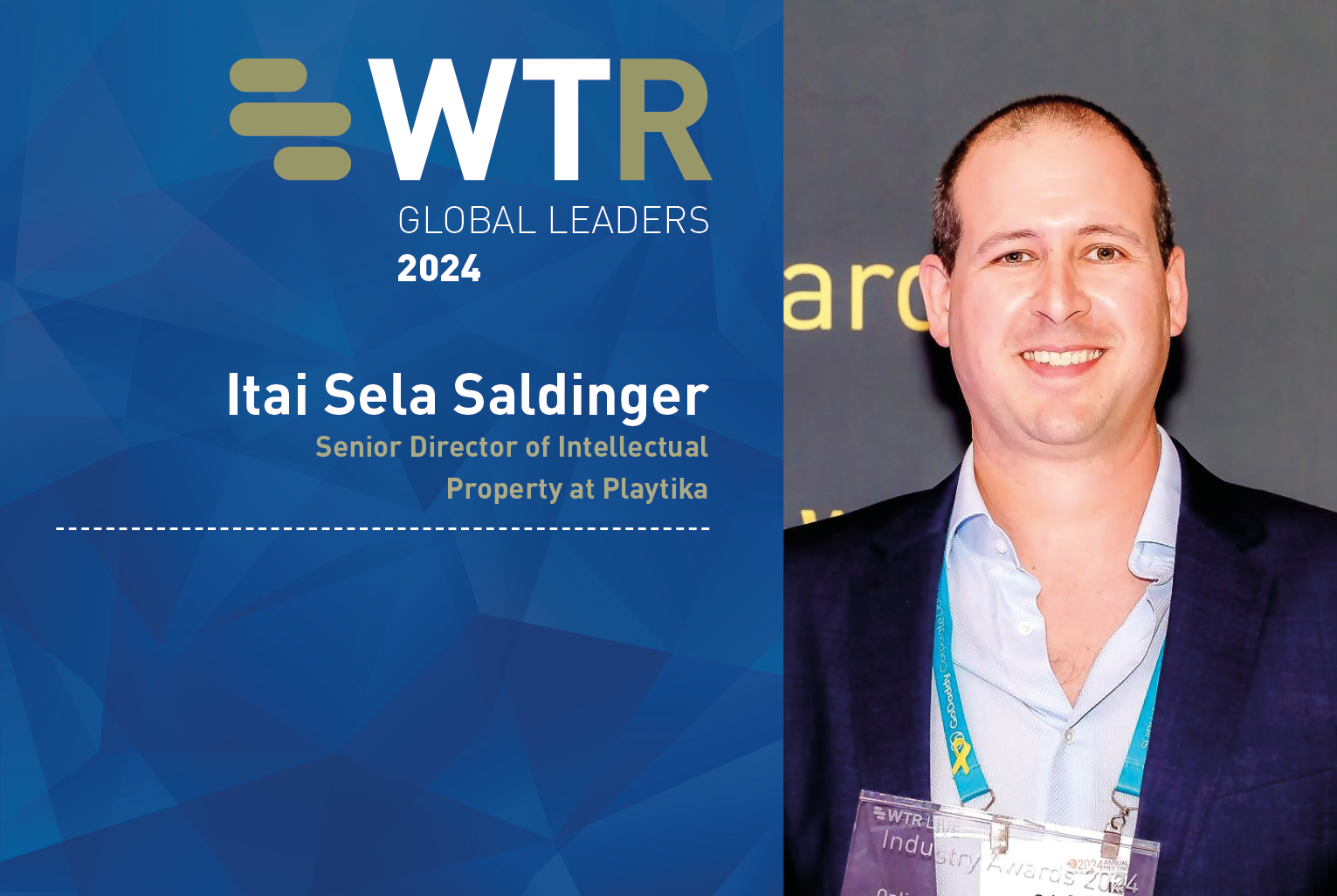Itai Sela Saldinger

What prompted your move from private practice to in-house, and what advice would you give to others considering a similar path?
I dabbled with the thought of going in-house for some time, but I wasn’t sure. I started out in IP litigation and really liked it. I was never quite sure what an in-house IP counsel could do in Israel – either with a local or international company.
When Playtika reached out to me with an offer, I was very intrigued. The opportunity to build an IP department for an online gaming company was hard to pass.
I would say that in-house counsel work is more challenging and demanding than private practice. All of a sudden, you are the client and you have to make the hard choices, so you have to be ready. For anyone looking to make that transition, I would recommend studying the industry that you are looking to enter, learning the legal challenges that it faces – from litigation to regulation – and expressing that knowledge in interviews.
In-house counsels are seeing increasing convergence in their roles, covering more ground from broader brand protection to copyright to trade secrets. How is this affecting your practice on a day-to-day level?
I started as the sole IP counsel for my company, so I had to make sure to cover everything, from prosecution to enforcement, patents to trade secrets – and now generative AI – and everything in between. Multitasking is crucial, as one must build an IP team, policies and training programmes, stay on top of current events in the relevant fields and, at the same time, deal with routine work. You have to see the bigger picture and understand your business, industry and product. Make sure that you align with all relevant business units. You need to know where to be more aggressive and where to be more lenient, as well as where to focus and where to skim. Surrounding yourself with strong team members who are eager to learn, love what they do and are there to support you is my method of handling everything.
What are the biggest challenges that Playtika has faced in the last 12 months, and how are you overcoming these?
As you can imagine, there are many challenges. Looking back, I would have to say that generative AI was one of the biggest and most difficult ones. New gen-AI tools still come out almost on a daily basis – everyone wants to use them, implement them and be the first to do so. So we were faced with the question, “how and what can we approve, and for what use?” There was no precedent. There is no case law. Legislation is only emerging now, and you have many different business units wanting answers.
We had to adapt very fast and introduce a process that, on one hand, allows the business to test new tools and train itself, and on the other hand, to make sure we will not face unnecessary risks. Further, we started raising awareness about the legal challenges and risks through regular dedicated trainings, internal blogs and articles and generally talking about it at every chance we had. In addition, we formed an in-house legal AI task force for all of these new challenges, which are broader than just intellectual property. We work closely together and with relevant stakeholders in the company to make sure that all of the business’s needs are met.
At the INTA Annual Meeting in Singapore last year, you said that you don’t think AI will be the death of trademarks. Twelve months on, how are you seeing AI impact the trademark space and are you still feeling optimistic?
Yes! We are seeing gen-AI tools that are learning and being taught to respect trademarks and other IP rights and to work with brand owners. Unlike 12 months ago, today, when you ask a gen-AI text-to-image tool to create an image that includes a brand, the brand name or logo will not appear in most cases. We are also seeing generative AI being utilised to protect trademarks. I believe that this shows us that trademarks are here to stay, and that any legitimate gen-AI tool or provider must respect them.
Itai Sela Saldinger
Senior Director, Legal - Intellectual Property
[email protected]
Itai Sela Saldinger is the senior director of intellectual property at Playtika. He is responsible for all of the global IP aspects of the company, including its trademark and patent portfolios, IP litigation and more. Before moving in-house, Mr Saldinger worked at some of Israel’s leading IP firms and represented many international clients and brands in various matters – from patent litigation to trademark prosecution and enforcement.